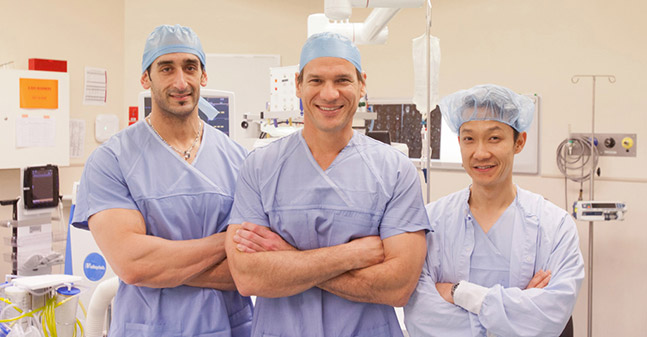Even when it’s the only good option for treatment, choosing to have knee surgery is a big decision. Orthopaedic surgery is a major life event for every patient, because it carries both significant risks and profound benefits for health.
It takes a lot of work, and always involves discipline and diligence in adhering to rehabilitative regimes over a period of time; but it also delivers life-changing improvements in physical function that can’t be achieved any other way.
For your knee surgery to be successful in the long term, you should ensure that you’re properly prepared for it. This planning should involve accommodating periods of inactivity, preparing to manage pain and surgical wounds, and getting ready for a long rehabilitative phase involving physiotherapy and structured exercise.
All of these factors are manageable as long as you’re armed with the right information—which you can get by asking your surgeon a few questions about your surgery.
What do I have to do before the surgery?
Your doctor will consider many things when planning your treatment, including how extensive the surgery is, your general health and existing issues, your normal level of activity, and your age.
These things will help your doctor to determine what risks you face, including both the general risks particular to your surgery, and where you are at greater risk because of your personal circumstances. Your doctor can then recommend or arrange protective factors to reduce your risk in these areas.
If you’re taking medications, your doctor will review them, and you may have to change some of them for a period before and after your surgery. You might also have to change your diet, activities, and health behaviour.
For example, you will need to change anticoagulant medications, stop smoking, or lose some weight prior to your surgery if your doctor believes they are likely to cause complications and danger.
What risks are there in the surgery?
Every surgery carries risk, whether it’s from the patient’s health, the anaesthetic, the inactivity afterwards, or the surgical procedure itself. The risk will vary between procedures—a simple arthroscopy will obviously carry less risk than a total knee replacement—which is why it’s important to get a clear picture from your doctor about the risks involved in your surgery, and the risks to you as an individual, before you consent to treatment.
Your surgeon will determine your specific level of risk, and outline ways to minimise it. This may mean taking higher doses of anticoagulant therapy to prevent clots from forming in your blood, changing or stopping the medications you take for pain and inflammation, or having a different intravenous drip and extra blood glucose levels taken if you’re diabetic. If your doctor believes that your risk is too high, you may need to delay or cancel your surgery until your issues are resolved and it’s safe to operate.
What does the surgery involve?
Your doctor will explain how your procedure is performed, including how they will operate, and how you’ll be positioned, anaesthetised, assessed, and cared for. Your surgeon will likely also show you what your joint implants look like, and what materials they’re made of, so you know how they work. This information is useful after the surgery when you’re monitoring the progress of your healing, and so you’re prepared for possibilities like setting off metal detectors at the airport.
Although it varies between patients for any number of reasons, it’s still important to ask about how long your recovery time should be. You might be surprised to learn how soon you’ll be up walking around and showering after your surgery—and you might be equally as surprised to learn how long it takes to completely recover from an ACL repair. Knowing these things can help you prepare yourself better for your admission to hospital, and the demands of the recovery period.
What can I expect in the long term?
Although your surgery aims to improve your quality of life with better pain relief, mobility, and stability, it’s likely that you’ll have to make long-term changes to your lifestyle following your surgery. This can be a limit on the weight of things you can lift, or exercises you’ll need to continue doing for a long time.
You may also need to modify your participation in some sports and activities, as some movements can cause more impact and wear on your knee and the materials used to repair or replace the joint.
Your surgeon will discuss with you what activities are suitable for you, and how to take the best care of your knee so that the benefits of your surgery will last a long time.
Being informed about your knee surgery is an important part of a successful outcome: it can help you monitor your progress, manage your lifestyle, and reduce your risks. For the latest evidence-based information about your surgery, ask your knee surgeon. Brisbane patients who are considering arthroscopy, ACL repair, or knee replacement can contact Greg Sterling Orthopaedics at any time for more information, and we’ll be happy to help.







